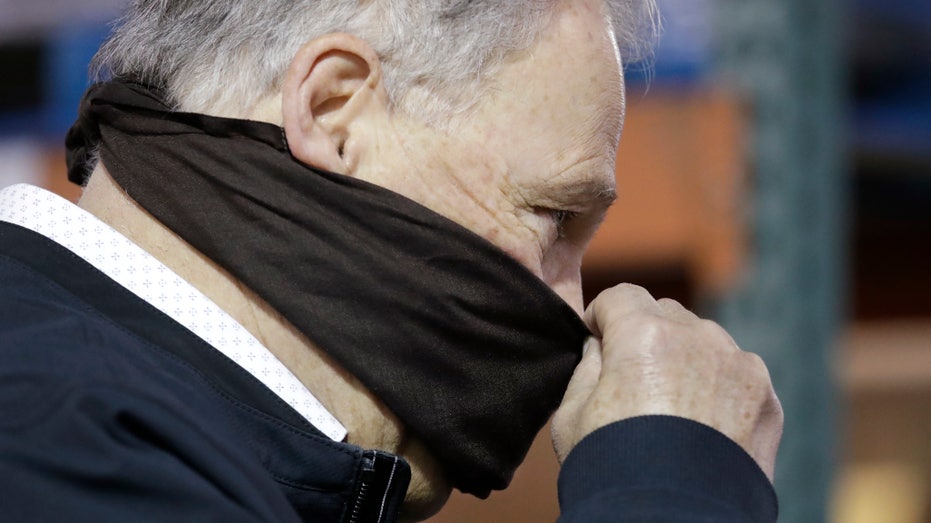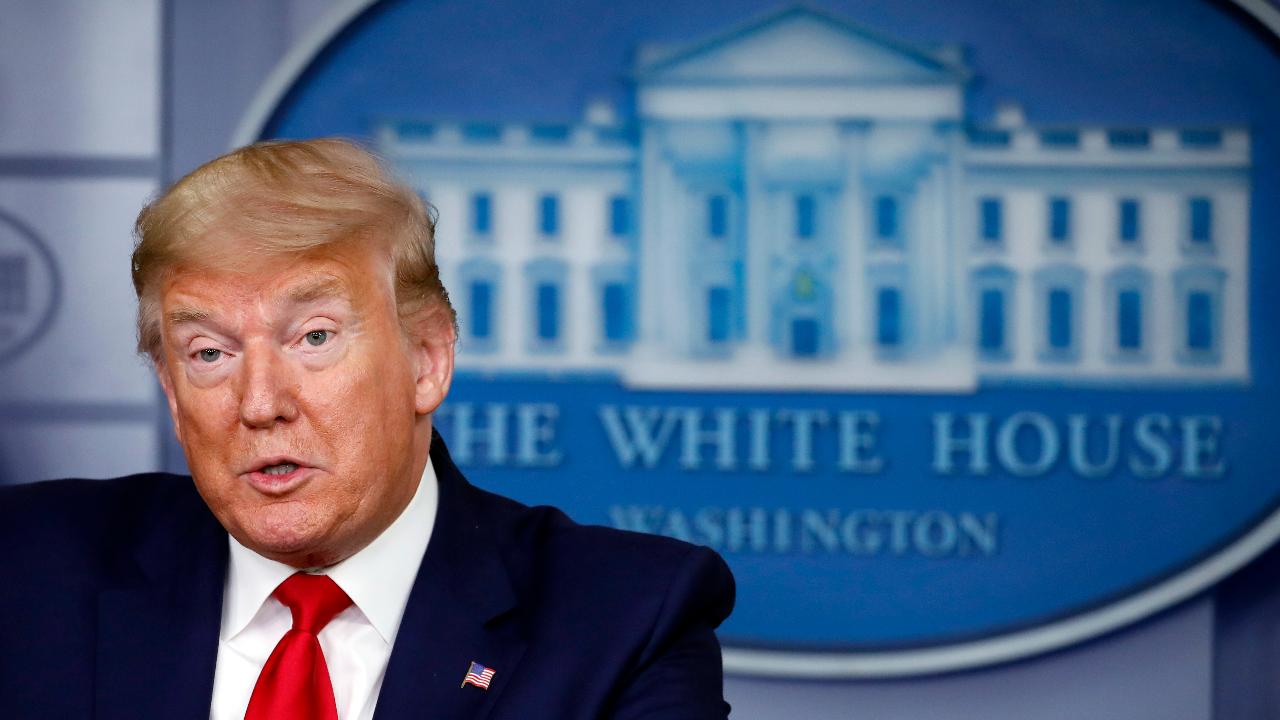CDC recommends 'voluntary' coronavirus mask wearing
President Trump says he's 'choosing not to' wear mask
Get all the latest news on coronavirus and more delivered daily to your inbox. Sign up here.
It’s a good idea to wear a face covering in public in order to slow the spread of the coronavirus, according to the Centers for Disease Control and Prevention — even if President Trump won’t be.
The CDC changed its recommendation Friday to urge Americans to wear cloth face covering made from household items like a T-shirt or a non-surgical mask when out in public. Officials said people who lack symptoms may be carrying the virus and transmitting it to others by speaking, coughing or sneezing.

Washington Gov. Jay Inslee adjusts his makeshift mask Friday. (AP Photo/Elaine Thompson)
WALMART EXPANDS CORONAVIRUS PRECAUTIONS, TO LIMIT STORE CAPACITY
Officials emphasized that it’s an especially good idea to use some sort of cloth mask in public settings where social distancing is difficult, such as a grocery store or pharmacy.
The president, speaking during a White House coronavirus task force news conference Friday, emphasized that the guidelines are just voluntary and said he’s “choosing not to do it.”
“It’s a recommendation,” he said. “They recommend it. I just don’t want to wear one myself.”
CORONAVIRUS OIL PLUNGE LEADS TRUMP TO OFFER STORAGE UNTIL PRICES RECOVER
The CDC also said it’s still important to maintain 6-foot social distancing in order to slow the coronavirus’s spread. And other recommendations also still remain in place, including staying home as much as possible, avoiding social gatherings, not traveling, not eating out and practicing good hygiene with frequent and thorough hand-washing.
And while officials are now saying it’s a good idea to wear a mask, they emphasized that they’re not recommending people wear surgical masks or N-95 respirators, which they called “critical medical supplies that must continue to be reserved for healthcare workers and other medical first responders.”
There were more than 270,000 COVID-19 cases in the U.S. as of Friday and more than 4,700 deaths, according to Johns Hopkins University data. Worldwide, there were more than 1.08 million cases and 58,000 deaths.




















